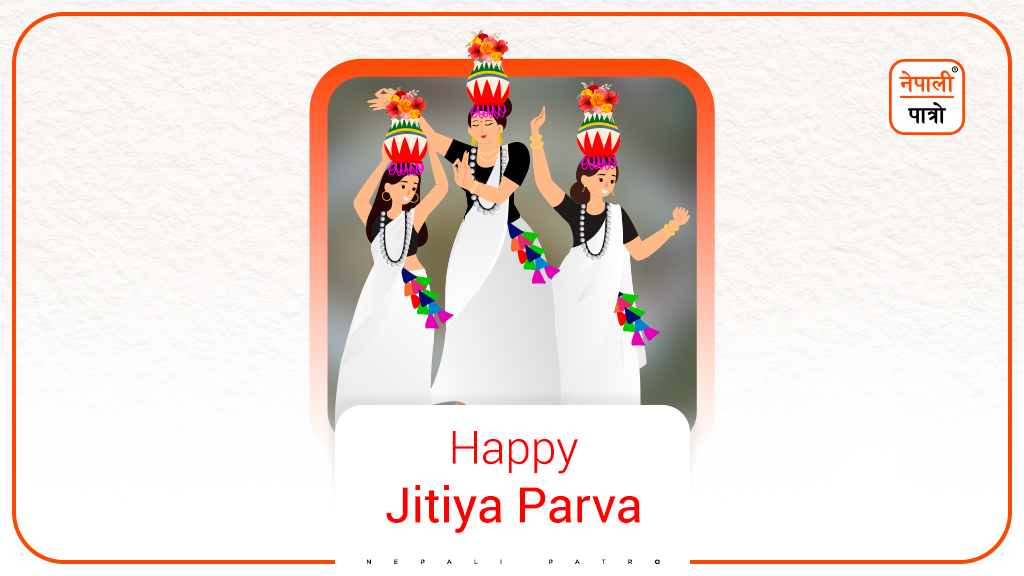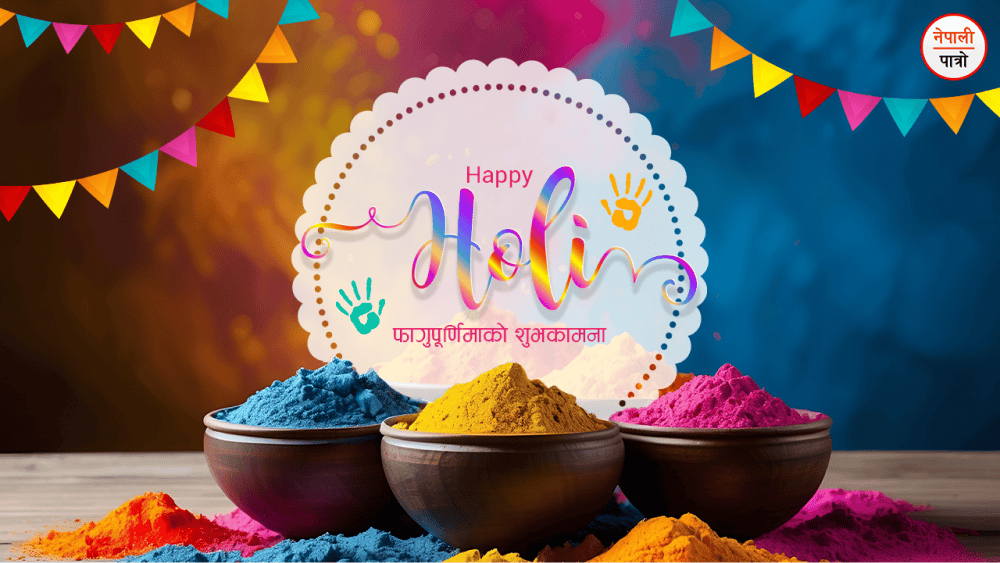
Jitiya Parva
Jitiya Pawani Parva. The fasting done especially by married women for the longevity of one’s child is known as Jitiya Pawani Parva or Jitiya Parva. Jitiya Pawani Parva is celebrated on the eighth day or Ashtami tithi of Ashwin Krishna Pakchya in various districts from Chitwan to Jhapa in the Terai belt of Nepal. During this fast, it is a custom to listen to the story and glory of the God Jitbahan during the night. This celebration remains one of the biggest festivals of the Tharu and Maithili community and is celebrated for the happiness, peace, and longevity of children. Jitiya is celebrated for three consecutive days in a row, on the seventh, eighth, and ninth tithi or date of Ashwin Krishna Pakchya.
According to a story of the Jitiya Pawani festival, during the Mahabharat war in the Dwapar era, when Dronacharya’s son Ashvatthama killed the Pandava’s sons, Draupadi became distraught and she along with her companions, reached the divine sage Dhaumya. And, she mourned the loss of her child in front of him. In Draupadi’s reply sage Dhaumya advised her that worshipping Jitbahan, the man who got blessed by Lord Bishnu in the Satya yuga can eliminate this pain and distraught of losing children. It is believed by people from the Tarai region that this festival started at the same time as per sage Dhaumyas’ advice.
Another legend about this celebration tells a story about a Gandharva king Jimutvahan/Jitbahan. According to this legend, Jimutvahan was king of Gandharvas. Giving up his kingdom to his brother, he went to the forest to serve his father living there. There he saw an old woman mourning. When asked about her mourning, she told him that she belongs to Nag Bansa (the family or dynasty of snakes). And due to an oath, she has to offer her only son to Garuda the next day to feed. Because of this, the old lady was sad and distraught.
Therefore, Jimutvahan promised to protect her only son, and the next day he laid on a bed of rocks and offered himself to Garuda. Garuda came and attacked Jimutvahan with his claws, but he stayed still and calm. Suddenly Garuda stopped attacking and inquired about his identity. Then Jimutvahan told Garuda the entire story of an old woman. Garuda was impressed by his kindness and benevolence, thus he promised that he will not take any sacrifices from Nag Bansi from then onwards. From that time, to cherish this legend mothers started to keep fast for the wellbeing of their children.
Especially the Tharu community including some other communities as well are celebrating this festival from the day of the Saptami date of Aswin Krishna Pakchya and they finalize it on Nawami. Similar to the Haritalika Teej celebration festival of the hilly areas of Nepal, the Jitiya festival is a big festival of Tarai women. On the seventh day, the women observing the fast eat Laha similar to Dar Khane Day of Haritalika Teej. On the occasion of this festival, it is a custom to invite married women and other relatives to eat and feed. During which fish, and meat with other sweet and savory dishes are consumed.
The Jitiya festival celebrated for the longevity of children, procreation, and family happiness has religious as well as cultural significance. This festival has highlighted the cultural role and importance of women. As this festival is celebrated on the Pitri Pakchya women also make offerings to departed female souls of their ancestors. To fulfill various vows, the people from the Tarai belt celebrate various festivals like Chaurchan, Dipawali or Tihar, Guria, Jitia, Maghi, and Chhath.
On the seventh day, as per the Nuhay Khaye (eat after bath) method, the women take a holy bath so as to purify themselves. Then they worship and make an offering to the deity Jitbahan. In the process also known as Tel Khari, they offer mustard oil with Pina and sakkhar (unrefined sugar) on the leaves of Sponge Guard known as Ghiraula in Nepali. This same Tel Khari is applied on the head by everyone in the house as a pure offering or prasad. After bathing in the sacred lake and river, while elders tell the story of Jitbahan, youngsters listen to it.
It is also a custom to invite women to a feast on this same day, which is called Pitrain. On this day, married women have a tradition of eating bread made of millet flour (maruwa) with fish. Thus, the day before the start of Jitiya’s fast is also known as ‘Mach-Madua’. Vegetarians, on the other hand, eat kheer or rice made of Gamhari (a type of paddy) rice.
In the last hour of the night of Saptami, before the beginning of Ashtami Tithi, curd with chiura, sweets, fruits, etc. are eaten, as a process called ‘Othangna’. Since the Jitiya fast is on the Ashtami tithi, women fast until its end. The Jitia festival, which involves fasting without even a drop of water, is known as a difficult fast.
The fasting women offer seven kinds of fruits or food items during the Jitiya Puja as worship materials. These seven ingredients include coconut, cucumber, soaked pea with other ingredients. In the basket filled with these ingredients, seven leaves from different plants such as a bamboo leaf, banana leaf, jimhar leaf, etc. are also kept.
On Ashtami, also called JivitPutrika people fast and listen to the moral story of Jitbahan, and the women of the village gather and perform the original dance of “Jhamta”. On this same day, women bathe in a nearby pond and give argha to the sun god.
On the evening of Ashtami, the women purify a spot in the courtyard with cow dung and make a small pond by digging it. On this ponds’ edge, a branch from the Pakdi tree (Ficus Benjamin, or a kind of Peepal) is planted. An image of an eagle and a fox are drawn on the upper and lower part of the branch simultaneously. In this place, an urn filled with water is kept with a kush statue of Jitbahan which is worshipped by women holding fruits as offerings.
After a holy bath during the ninth day, offerings are made to Jitbahan, and prasad is accepted. After concluding the fast in this way, the Jitiya festival ends with the worship of Jitbahan and the family deity of the house.
For newlyweds women, the Jitiya celebration is even more important as it is also considered as an excuse to call them by their parents. On the occasion of this festival, it is customary that the brother or someone near to call the new bride to her birth home. This festival is also considered as an opportunity for brothers and sisters to meet in one place.
The Tharu community living in Kathmandu, the capital of the country, and women from other communities also celebrate the Jitiya festival with great fanfare. Women celebrating this festival of Jitiya Parva are dressed in traditional Tharu attires reflecting their culture.
Apart from the Tharu caste, the Jitiya Festival celebration is joined by other community groups living in the Terai and those migrating to Kathmandu in recent days. The rituals and worship methods of the festival remain according to the Tharu and Maithili communities’ rule and culture. On the occasion of this festival, in different worship programs held in the city, their folk dances, costumes, with cultural and mythological dances are performed.
Jitiya festival, carrying the identity of Nepal and all Nepalese is the festival increasing social harmony. May this festival provides inspiration and encouragement to all of us to move towards building an egalitarian, progressive and civilized society. Nepali Patro family wishes our best wishes to every Nepali on the occasion of the Jitiya Pawani celebration. To Read this article in the Nepali Language please click here. Jitiya Parva

October 8, 2023 2 years
jitiya parbako sabaikai 2080 salko Hardik subhakamna
October 19, 2023 2 years
iiau